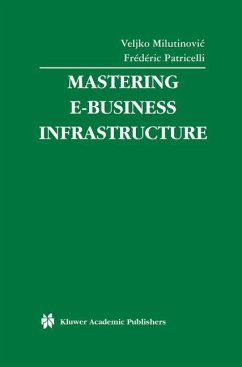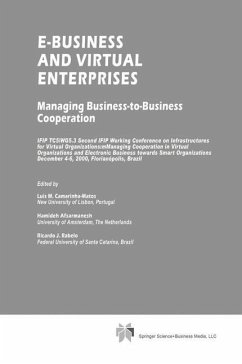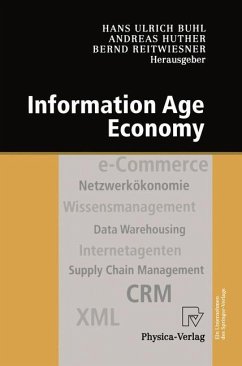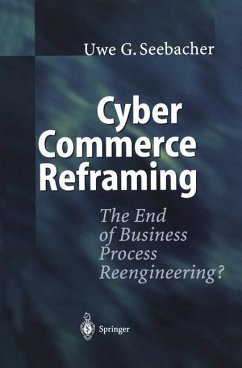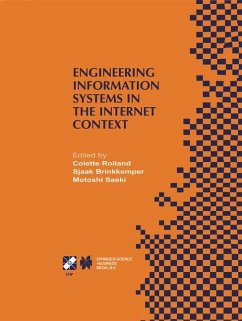
Seeking Success in E-Business
A Multidisciplinary Approach
Herausgegeben: Viborg Andersen, Kim; Elliot, Steve; Swatman, Paula M.C.; Trauth, E.M.; Bjørn-Andersen, Niels

PAYBACK Punkte
38 °P sammeln!
In the foreword to this volume of conference proceedings for IFIP Working Group 8.4, it is appropriate to review the wider organization to which the Working Group belongs. The International Federation of Information Processing (IFIP) is a non-governmental, non-profit umbrella organization for national societies working in the field of information processing that was established in 1960 under the auspices of UNESCO. IFIP's mission is to be the leading, truly international, apolitical organization which encourages and assists in the development, exploitation and application of Information Techno...
In the foreword to this volume of conference proceedings for IFIP Working Group 8.4, it is appropriate to review the wider organization to which the Working Group belongs. The International Federation of Information Processing (IFIP) is a non-governmental, non-profit umbrella organization for national societies working in the field of information processing that was established in 1960 under the auspices of UNESCO. IFIP's mission is to be the leading, truly international, apolitical organization which encourages and assists in the development, exploitation and application of Information Technology for the benefit of all people. At the heart of IFIP lie its Technical Committees that, between them, count on the active participation of some two thousand people world-wide. These Groups work in a variety of ways to share experience and to develop their specialised knowledge. Technical Committees include: TC 1. Foundations of Computer Science; TC 2: Software: Theory and Practice; TC 3:Education; TC 6: Communication Systems; TC 7: System Modelling and Optimization; TC 9: Relationship between Computers and Society; TC 11: Security and Protection in Information Processing Systems; TC 12: Artificial Intelligence and TC 13: Human-Computer Interaction. The IFIP website www.ifip.org) has further details. Technical Committee 8 (TC8) is concerned with Information Systems in organisations. Within TC8 there are different Working Groups focusing on particular aspects of Information Systems.





